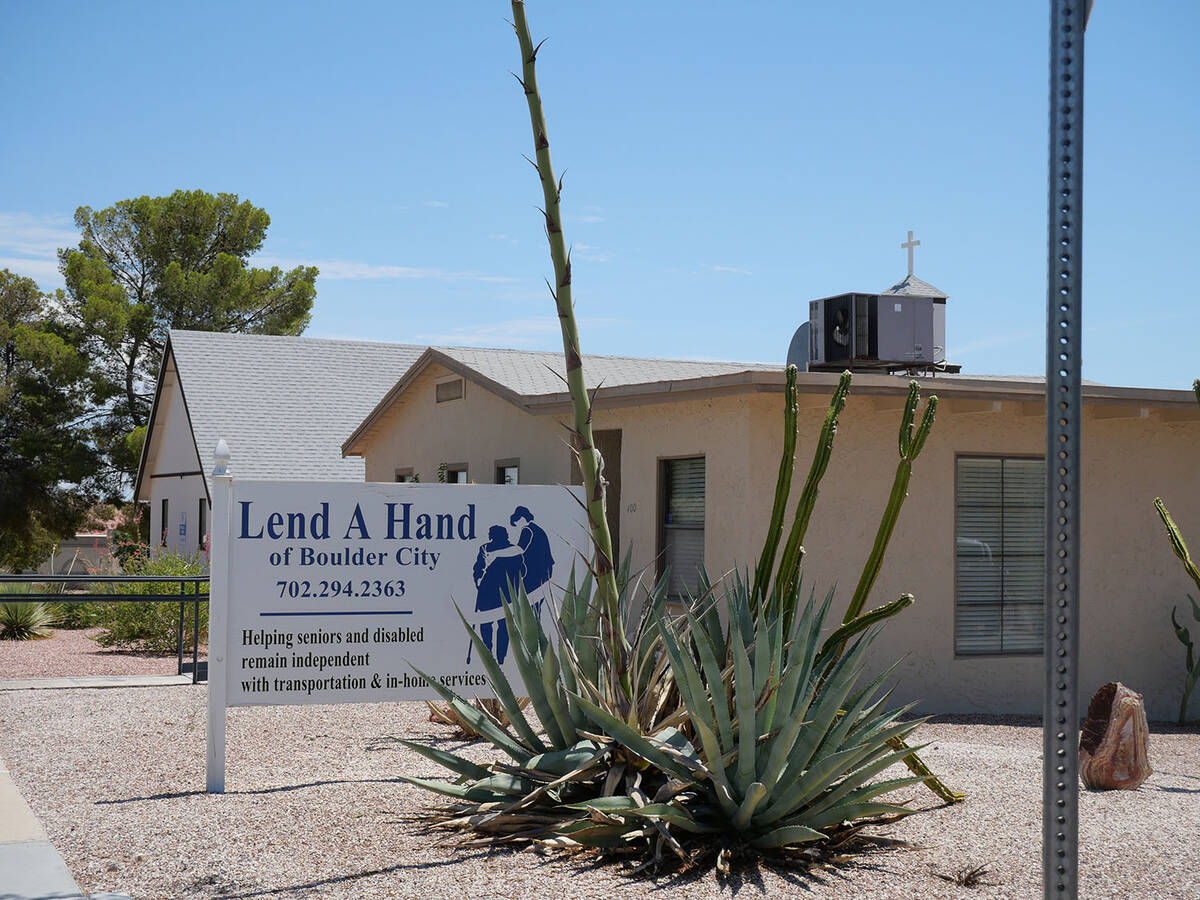Lend A Hand awarded $101K from state
In the wake of the COVID-19 pandemic, the state of Nevada has awarded $30 million in Community Recovery Grants to nonprofit organizations including Lend A Hand of Boulder City. The local organization was one of the 30-plus applicants that received money funded by American Rescue Act Plan dollars.
In late July, Lend A Hand was approved for $101,271. This chunk of cash will allow the organization to hire additional staff members and further its efforts of expanding transportation and in-home care services to clients.
“We are extremely grateful for the opportunity to have some of those funds available,” said Executive Director Shannon Eckman.
Eckman states that since COVID, Lend A Hand lost over half of its volunteers and that the funds will be used to hire three additional staff members for office work and transportation.
“We provide individual escorted transportation to medical appointments and life-sustaining services, in-home care, respite services for caregivers and equipment loans,” an official statement from the organization stated.
“We help people remain independent in their homes while helping them access the care they need to do so. Lend A Hand was gifted a vehicle with specialized handicapped accessible equipment. After realizing that paratransit doesn’t reach many of our wheelchair-bound residents, we expanded our client transportation services. We partner with two paid agencies for clients that need more care than a volunteer can provide.
“With the funding from CSFRF, we can hire additional staff members to help continue our expanding services to our clients as volunteers are becoming harder to find as the COVID pandemic continues.”
The Community Recovery Grant program launched in December 2021, with more than 300 organizations applying for more than $445 million in funding for COVID relief.
The grant money dished out by the state focused on five critical areas where it felt needed the most attention. These areas include investing in schools, solidifying a healthy state for all Nevadans, providing good jobs for a sustainable workforce, supporting families with access to child care, and strengthening secure housing.
“Every day, these nonprofits do critical work to improve the lives of Nevadans. From fighting food insecurity and homelessness to connecting underserved communities with resources to succeed in education and the workforce. I’m so proud of the work done by Nevada lawmakers to get these federal dollars back into the community to directly help people across our state,” said Gov. Steve Sisolak.
Contact reporter Owen Krepps at okrepps@bouldercityreview.com or at 702-586-9401. Follow him on Twitter @OKrepps85.















